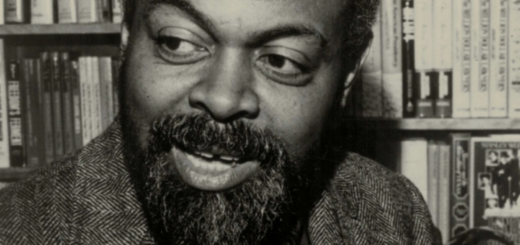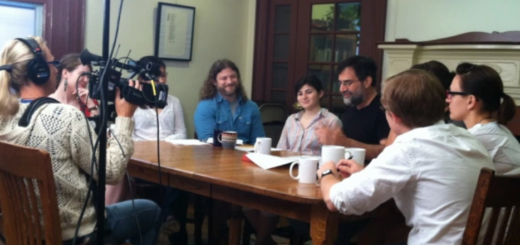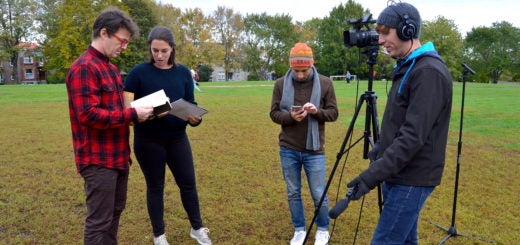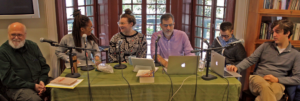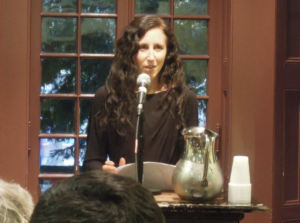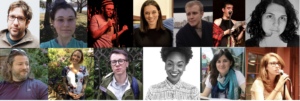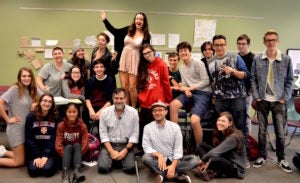Announcement: 9/9/18 on starting week 1
I have really enjoyed reading and responding to your introductions. Keep those coming HERE!
Meantime, week 1 now begins for real. Between now and next weekend, we hope everyone will read the poems in the week 1 syllabus, and watch the videos, and then will go to the discussion forums (there’s a subforum for each poem) and post a comment or question or respond to others’ comments.
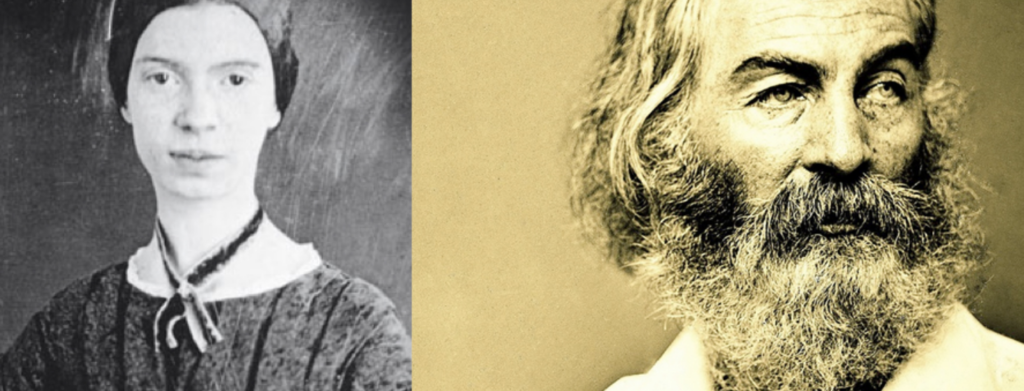 You can find all the week 1 materials HERE. I’ve pasted the headnote to week 1 below.
You can find all the week 1 materials HERE. I’ve pasted the headnote to week 1 below.
Here (copied from our FAQ page) is our suggestions for how best to approach each week of the course:
- We suggest the following approach: 1) read the poem, then 2) listen to the recording of the poet reading the poem (if such a recording is available), then 3) watch the video discussion of that poem, and then 4) read around in the discussion subforum designated for that poem and perhaps post your own comment or question or response to another’s post. Then repeat the process for the next poem. And the next. And so on, until you have completed the week’s poems, videos and discussions.
Confused about how to find the poem-specific discussion forums? Look to the left of any ModPo page and see the main menu. Click on “Discussion Forums.” Scroll down through the list of forums until you see “Week 1.” Click on that. Then look to the right and see that each poem has its own subforum. There’s where we discuss the poems, one poem at a time.
If you are returning to ModPo for a 2nd, 3rd, or Nth year, we welcome your participation in discussions of the week 1 poems in the main syllabus. And you can never read these poems often enough. But, if you want to encounter new poems and watch new videos in which we collaboratively interpret the poems, I highly recommend ModPoPLUS. This is a supplemental syllabus that parallels the main syllabus, week by week. Go HERE and follow along, week by week. There is also a discussion forum just for ModPoPLUS.
Our first weekly live webcast will happen on Wednesday at 3 PM Philadelphia time. More about that later. Meantime, please make a note of it for your calendars and plan to watch and participate live if you possibly can.
If you need help in figuring out ModPo, feel free to write us at modpo@writing.upenn.edu. You can always go to modpo.org to see all announcements, news, features, social media links, etc.
Knowing not to try to put a current back,
—Al
COPY OF THE HEADNOTE TO WEEK 1:
In this first week of our course, we’ll encounter two 19th-century American poets whose quite different approaches to verse similarly challenged the official verse culture of the time. As a matter of form (but also of content), Walt Whitman and Emily Dickinson were radicals. What sort of radicalism is this? In a way, this course is all about exploring expressions of that radicalism from Whitman and Dickinson to the present day. Such challenges to official verse culture (and often U.S. culture at large) present us with a lineage of ideas about art and expression, a tradition that can be outlined, mostly followed, somewhat traced. In this course, we follow, to the best of our ability — and given the limits of time — that tradition and try to make overall sense of it.
You will find that we do this one poem at a time. Here in week 1, we will explore Dickinson first, Whitman second, and then begin to sketch out the major differences between them, which, some say, amount to two opposite ends of the spectrum of poetic experimentalism and dissent in the nineteenth century. Which is to say: on the spectrum of traditional-to-experimental poetry, these two poets are on the same end (experimental); on the spectrum of experimentalism, their approaches can put them on opposite ends. In short, they offer us alternative poetic radicalisms, and their influences down the line (which we will explore in week 2) are both powerful but are also largely distinct. One question you’ll be prepared to ask by the end of the course: Is the Dickinsonian or the Whitmanian tradition more ascendant and apt in today’s experimental poetry?

